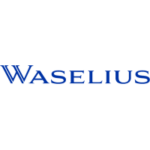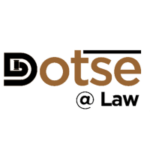-
Are there specific legal requirements or preferences regarding the choice of entity and/or equity structure for early-stage businesses that are seeking venture capital funding in the jurisdiction?
When establishing an early-stage business, the choice of legal structure not only establishes the foundation for future entrepreneurial activities, but also impacts, among other things, tax and accounting responsibilities, the formalities required for the formation process, and the way investors or financial institutions evaluate the company. A basic distinction is made between partnerships and corporations. Partnerships, on one hand, are characterized by the fact that they can be set up easily and with little bureaucratic and financial effort. Since a partnership is an association of individuals, the founding members are, however, basically liable with their private assets which is one of the reasons that partnerships are the exception within the German venture capital environment. Another reason is that the participation of an investor, which itself is structured as a tax transparent investment fund, in a partnership might also negatively impact the tax status of such investor.
On the other hand, a limited corporation is only liable with its assets. In Germany, the most widespread limited corporation in the early start-up phase is the limited liability company (Gesellschaft mit beschränkter Haftung) with a required share capital of EUR 25,000.00. The main advantage of the limited liability company is the limited liability of its individual shareholders. The shareholders are not liable with their private assets if the company suffers difficulties, but only in the amount of the capital contribution or the amount of the company’s assets. In addition, such legal form simplifies the collaboration with external investors as the share capital is split in transferable shares with a nominal value of EUR 1.00 each.
For founders who pursue an initial public offering in the future, there is also the option of setting up a German stock corporation (Aktiengesellschaft). However, in Germany a stock cooperation involves from scratch increased organizational and legal efforts for the founding team. In addition, the share capital of a German stock cooperation is at least EUR 50,000.00. Therefore, the formation of German stock corporations is the exception rather than the rule. If the desire to go public arises after the founding process, a German limited liability company can also be converted into a German stock corporation by way of a change of legal form without creating tax disadvantages.
-
What are the principal legal documents for a venture capital equity investment in the jurisdiction and are any of them publicly filed or otherwise available to the public?
In connection with a venture capital financing, the investment agreement, the shareholders’ agreement and the articles of association form the core documentation. The investment and shareholders’ agreements create the basis for the investor’s financial investment and participation in the respective company and consist of two independent parts, the investment agreement, which contains the agreements on the investor’s financial participation in the start-up, as well as the shareholders’ agreement, which regulates the future cooperation between the founding shareholder(s) and investor(s) as (future) shareholders of the company. The two parts are either combined into one agreement or concluded as two separate agreements. If the target is a German limited liability company pursuant to the German Limited Liability Companies Act (GmbHG), usually, the signing of the investment documentation requires notarization by a public notary, among others, due to the agreed provisions regarding the transfer of shares in the company. This may lead to substantial costs depending on the investment sum.
With respect to the company’s articles of association, the independent regulatory content of the articles of association is limited because the material commercial and legal agreements between the founding shareholder(s) and venture capital investors are regulated in the investment and shareholders’ agreement. Therefore, only those provisions having mandatory corporate law character are typically included in the company’s articles of association. Nevertheless, the articles of association are a mandatory part of every venture capital investment documentation as it is necessary to align the articles of association with the investment and shareholders’ agreement. Furthermore, accompanying documents such as for example managing director service contracts, rules of procedure for the management and/or an advisory board and agreements on (virtual) employee incentive schemes are regularly negotiated in the course of a venture capital funding.
With regard to publication requirements the investment and shareholders’ agreements (and the other accompanying documents) do not have to be published in the company’s commercial register. Therefore, the respective regulations contained in investment and shareholders’ agreements remain confidential and cannot be reviewed by third parties. The articles of association, by contrast, are available for public inspection in their most recent version in the company’s commercial register.
-
Is there a venture capital industry body in the jurisdiction and, if so, does it provide template investment documents? If so, how common is it to deviate from such templates and does this evolve as companies move from seed to larger rounds?
In Germany, there exists no specific venture capital industry body comparable, for example, to the National Venture Capital Association in the US. However, there exist certain private initiatives such as sector associations providing publicly available template documentation for the foundation and (seed) funding rounds. While such templates are sometimes used in the seed funding rounds, the investment documentation during the subsequent funding rounds is still predominantly drawn up individually by the lawyers based on their standards due to the increasing complexity of the investment structure.
-
Are there any general merger control, anti-trust/competition and/or foreign direct investment regimes applicable to venture capital investments in the jurisdiction?
Venture capital investments are in this regard no different from other (M&A / financing) transactions that are regulated in Germany. Seed and early-stage venture capital transactions are in general due to their size not subject to anti-trust/competition law and merger control. If venture capital transactions, in which for example state venture capitalists, venture capital investment vehicles of large industrial companies and/or business angels with many investments participate, exceed the relevant turnover thresholds according to the German Act against Restraints of Competition (Gesetz gegen Wettbewerbsbeschränkungen (GWB)) then those transactions are subject to merger control by the Germany the Federal Cartel Office.
The review of foreign direct investments has become more important over the past years, also in Germany. Foreign investors must observe possible notification obligations under the Foreign Trade and Payments Ordinance (Außenwirtschaftsordnung) for these investments. These regulations also apply to German investors with international parent companies or other – possibly only indirectly affiliated – foreign shareholders. In the event of a notification obligation, a ban on enforcement subject to penalties applies until approval is granted by the Federal Ministry of Economic Affairs.
Having an eye on these topics and complying with the relevant regulations is therefore essential for the effective planning and structuring of venture capital transactions in order to prevent the invalidity of the transaction and/or material fines.
-
What is the process, and internal approvals needed, for a company issuing shares to investors in the jurisdiction and are there any related taxes or notary (or other fees) payable?
A share capital increase in a German limited liability company first requires the adoption of a valid shareholders’ resolution, specifying the concrete terms of the capital increase – in particular the exact amount by which the share capital shall be increased. Such resolution must be notarized and adopted by a qualified majority of at least 75% of the votes cast, unless the company’s articles of association provide for stricter requirements.
The existing shareholders of the company are granted a statutory subscription right (Bezugsrecht) in the event of the capital increase in order to have the opportunity to maintain the same participation before and after the capital increase. Following the adoption of the shareholders’ resolution, the company and the respective subscriber will sign a certified subscription form (Übernahmeerklärung). Subsequently, the subscriber is obliged to pay the issue price (i.e. the nominal amount of (in general) EUR 1.00 per share) for the respective newly issued shares. After the payment of the nominal amount(s) for the subscribed shares the company’s managing directors(s) will apply for the registration of the capital increase with the company’s commercial register. With the respective approval and registration of the capital increase in the company’s commercial register, the capital increase becomes legally effective and further additional investment obligations (associated with the subscribed shares) will become due and payable.
It should be noted that the capital increase resolution as well as the signing of the investment and shareholders´ agreement require notarization, which may trigger significant notary fees depending on the transaction value. However, specific taxes (such as stamp duties) do not apply when subscribing to newly issued shares within a venture capital transaction.
-
How prevalent is participation from investors that are not venture capital funds, including angel investors, family offices, high net worth individuals, and corporate venture capital?
Over the last few years the participation of corporate venture capitalists in the venture capital ecosystem, following a global trend, has increased significantly. With around 130 active corporate venture companies (CVC), which account for over 25% of German venture capital investments, corporate venture capital has developed into a key driver of innovation and growth. Reasoning behind is a win-win situation for both the investor and the target. The CVC can strengthen its competitiveness and open up new areas of business. The founders have a reliable partner ideally being the exit-partner at a later point in time. AI, aerospace, and green / clean tech, among others, predominate sector-wise.
German family offices, in the past, slowly adopted venture capital as an alternative asset class mainly because of a traditionally risk-averse investment strategy. Predominantly family offices invest into the venture capital fund itself and become a limited partner. However, recently, the number of family offices making direct venture capital investments has increased. Certain family offices prefer to split their venture capital distribution between direct investments and managed funds.
In terms of angel investors, those play, since the establishment of the German venture capital ecosystem, always an important role. In many cases in Germany business angels are themselves experienced entrepreneurs providing their know-how and access to their network in return for an investment at a relatively low valuation. The main difference to venture fund investors is the timing of the investment: angel investors support start-ups at a very early stage and are more involved in the development phase. The lower valuation of their investment is combined with a higher risk to fail.
It remains to be seen if CVCs, family offices and other non-traditional investors will, in 2025, continue to expand their participation in venture capital in a world of higher interest rates and political uncertainties.
-
What is the typical investment period for a venture capital fund in the jurisdiction?
Venture capital funds typically have a limited lifespan of 7 to 10 years. In the German market, Evergreen structures represent a rare exception. Given that most portfolio companies require at least 4 to 5 years – often longer – to achieve the scale necessary to attract a strategic buyer or generate a meaningful return, venture capital funds generally focus on building their core portfolio within the first 3 to 4 years following the fund’s inception. Accordingly, the active investment period of a venture capital fund usually spans 3 to 6 years.
-
What are the key investment terms which a venture investor looks for in the jurisdiction including representations and warranties, class of share, board representation (and observers), voting and other control rights, redemption rights, anti-dilution protection and information rights?
As part of the investment agreement, the key terms typically address (i) the company’s current valuation including the basis of its calculation (usually on a fully diluted basis), (ii) the specific investment amount, the class of preferred shares to be subscribed by the investor, (iii) an independent title and business guarantee catalogue and corresponding legal consequences to claim monetary damages and (iv) anti-dilution protection rights, which may range from broad-based weighted average to full ratchet mechanisms.
As part of the shareholders’ agreement, each (or a group of) investor(s) – or a supervisory body (usually an advisory board), the members of which are primarily chosen from the venture capital investor group – will reserve approval requirements and protective provisions for certain structural measures (e.g. further capital increases, establishment of further share classes and the like) or management actions as investors generally only subscribe to a minority stake in the company. Those approval rights typically do not apply to the company’s ordinary business operations but rather to those actions having a significant financial or structural influence on the company.
In addition, a venture capital investor will secure its investment through specific rights, including: (i) information and reporting rights, (ii) exit-related rights (e.g. lock-up provisions, tag- and drag-along rights) and (iii) disposal restrictions. The core commercial element of the shareholders’ agreement is the liquidation and proceeds preference based on which (exit) proceeds will be distributed among the shareholders. The prevailing standard in Germany is the “last in, first out” principle, implemented through a non-participating liquidation preference (einfache anrechenbare Erlösverteilungspräferenz). This mechanism ensures that the investor receives a return of its original investment amount before any distributions are made to ordinary shareholders and is primarily designed to provide downside protection in the event of an exit.
-
What are the key features of the liability regime (e.g. monetary damages vs. compensatory capital increase) that apply to venture capital investments in the jurisdiction?
In Germany, the liability regime in venture capital investments is primarily governed by provisions set out in the investment and shareholders’ agreements. These agreements define in detail the remedies available to investors in the event of a breach of guarantees provided by the founders or selling shareholders.
Usually, the primary remedy for any breach of representations or warranties (commonly referred to as title or business guarantees) is restitution in kind (Naturalrestitution). If such restitution is not possible or not effected within a certain period (usually one month), the defaulting party is required to pay monetary damages for the actual loss incurred according to Sections 249 et seq. of the German Civil Code (Bürgerliches Gesetzbuch).
In addition to monetary compensation, investment and shareholders’ agreements often include mechanisms for compensatory capital increases. This means that, in certain cases (typically for breaches of business guarantees), the investor may opt to receive additional shares in the company to reflect the diminished value of the company caused by the breach. The number of shares to be issued is usually calculated based on a reduced pre-money valuation of the company that reflects the financial impact of the breach. To facilitate this, all shareholders are generally obliged to support the corresponding capital increase and waive any pre-emptive or other conflicting rights.
To limit liability, the parties frequently include caps and thresholds. For instance, liability may be limited to the amount invested by the investor or to the founder’s annual gross salary. Further, compensation is only granted if both of the following conditions are met: (i) each individual claim exceeds a specified minimum threshold (de minimis amount), and (ii) the total sum of all such claims surpasses an agreed aggregate limit (basket amount). These thresholds are structured in a way that, once exceeded, the entire amount can be claimed.
Moreover, statutory warranty rights and legal provisions that would otherwise provide for broader remedies (e.g., under the German Commercial Code (Handelsgesetzbuch) or the German Civil Code (Bürgerliches Gesetzbuch)) are often contractually excluded, unless the breach was caused by intent, gross negligence, or fraud. In such cases, exclusions and limitations of liability do not apply. To prevent overlapping or multiple recoveries, the agreements usually contain provisions ensuring that the same damage cannot be claimed more than once, even if multiple guarantees are affected.
Finally, limitation periods are contractually agreed upon and typically range from 24 months to 5 years after signing, depending on the type of guarantee and the subject matter (e.g. extended periods for tax-related breaches). The limitation periods may be suspended by timely written notices but are subject to defined maximum periods to ensure legal certainty.
-
How common are arrangement/ monitoring fees for investors in the jurisdiction?
Except for limited director´s fees for serving on the (advisory board) of a target arrangement or monitoring fees for investors are uncommon in Germany.
-
Are founders and senior management typically subject to restrictive covenants following ceasing to be an employee and/or shareholder and, if so, what is their general scope and duration?
As a standard practice, founders and – where required by the investor(s) – certain key employees are bound by post-contractual non-compete and non-solicitation obligations. These restrictions are intended to prevent the use of company-specific know-how in a manner that is detrimental to the company’s business, either directly or indirectly. Such covenants typically remain in force for up to 2 years following the individual’s departure from the company as a shareholder and/or employee. However, their scope is limited in terms of subject matter and geography, usually confined to the business areas and regions in which the company operated at the time of the individual’s exit. In case of a breach, the individual is usually subject to a contractual penalty and/or may be required to transfer parts of his shares in the company. Passive minority investments in competing businesses – particularly where the investor holds no controlling influence – are often excluded from the non-compete obligations, depending on the specific agreement between the parties.
-
How are employees typically incentivised in venture capital backed companies (e.g. share options or other equity-based incentives)?
Employee incentivisation is typically achieved through their participation in implemented employee incentive program(s) enabling the respective beneficiary’s economic participation in the company’s future value increase. In Germany, the issuance of virtual shares (i.e. contractual payment claims instead of real shares) is common practice because the subscription for virtual shares does not trigger immediate tax liability upon grant, thereby avoiding so-called “dry income”. In addition, those virtually incentivised employees will have no actual shareholder rights which makes the organizational handling of the program easier, in particular if the employee leaves the company.
However, on December 18, 2023, the German Future Financing Act (Zukunftsfinanzierungsgesetz (ZuFinG)) entered into force which shall (inter alia) prevent the beneficiary from being burdened with tax in connection with the issuance of real shares at the time of issuance. The scope of these tax incentives created by this was extended even further by the Annual Tax Act 2024 (Jahressteuergesetz 2024). Therefore, it remains to be seen whether virtual shares will in future still predominate the employee incentivisation within the German venture capital environment.
-
What are the most commonly used vesting/good and bad leaver provisions that apply to founders/ senior management in venture capital backed companies?
In the context of standard vesting provisions, founders or employees undertake to transfer their shares (whether directly or indirectly held) to the company or other shareholders upon the occurrence of specific “leaver” events. This transfer is typically governed by the conclusion of purchase and assignment agreements.
The number and the equivalent value of the shares to be transferred is regularly determined based on the time and/or reason for the resignation and/or termination of the respective concerned individual (so called “bad leaver” or “good leaver” events) whereby the most commonly used vesting period amounts to forty-eight months with a linear monthly vesting and a one year cliff. In general, a founder is considered to be a “good leaver” if the company terminated or removed the concerned individual from his position as managing director without good cause (ohne wichtigen Grund). In addition, a “good leaver” case typically also exists if the concerned individual terminates or resigns for good cause (mit wichtigem Grund) for which the company is responsible for. Conversely, a person is considered to be a “bad leaver” if the respective (employment) relationship or office ends for good cause (aus wichtigem Grund) for which the respective person is responsible for or if the concerned person terminates or resigns without good cause (ohne wichtigen Grund).
The legal consequences following the respective leaver event are usually a core point of negotiations within a venture capital transaction. In case of a bad leaver event the concerned individual is typically obliged to transfer all of its shares for a consideration of the respective shares’ nominal value. In case of a good leaver event, the unvested part of the shares is usually transferred for a consideration of the respective shares’ nominal value and the vested part of the shares remains with the concerned individual.
The agreement of specific “good leaver” and “bad leaver” events is also common practice in virtual share option programs. However, due to a recent decision by the Federal Labor Court (Bundesarbeitsgericht) on March 19, 2025, such provisions should be examined in detail, as the court is of the opinion that provisions in such programs are invalid if they provide for the forfeiture of vested virtual share option rights in the event of self-termination as this constitutes inappropriate discrimination against the employee.
-
What have been the main areas of negotiation between investors, founders, and the company in the investment documentation, over the last 24 months?
As a result of recent and ongoing market uncertainties, target companies are increasingly being valued at lower levels. This has triggered more detailed negotiations around the commercial terms of transactions. From a legal standpoint, key focus areas have included the structuring of liquidation preferences and down-round protection mechanisms. Over the past 24 months, investors have gained stronger negotiating power, with participating liquidation preferences and full-ratchet anti-dilution clauses becoming more prevalent once again.
-
How prevalent is the use of convertible debt (e.g. convertible loan notes) and advance subscription agreement/ SAFEs in the jurisdiction?
In Germany, the use of convertible loan agreements is clearly the prevailing form of financing instruments in order to raise capital in a fast and cost-efficient manner without having to (immediately) carry out a notarized capital increase. However, also SAFEs (Simple Agreements for Future Equity) are on the rise and are now becoming more popular in the German venture capital environment. However, SAFEs cannot be used without adjustment due to the regulations applicable in Germany on the implementation of capital increases. In addition, there are also legal uncertainties due to the lack of relevant court rulings and statements in the literature. Thus, it can be expected that convertible loan agreements will remain predominant when it comes to short-term venture capital financing in Germany.
-
What are the customary terms of convertible debt (e.g. convertible loan notes) and advance subscription agreement/ SAFEs in the jurisdiction and are there standard from documents?
Convertible loan agreements and SAFEs generally follow a similar principle: the investor provides capital to the company in exchange for the right to subscribe to shares in the future. In short, a SAFE is a cash deposit combined with the option to subscribe for shares in the target whereas a convertible loan agreement is a standard loan combined with a contractually agreed right for conversion.
Convertible loan agreements typically have a fixed term – usually up to 2 years – during which the loan accrues interest, depending on the prevailing interest rate environment. SAFEs, in contrast, are usually structured as interest-free investments with no fixed maturity date. While convertible loan agreements exclude ordinary termination rights (except for termination for good cause), SAFEs generally do not provide for any termination options at all.
In the context of convertible loan agreements, there are various scenarios (upcoming financing rounds, the occurrence of an exit or expiry of the fixed term) that lead to a conversion of the loan amount (conversion triggers). In each case, a unilateral right of the investor or the company or a bilateral right or a general obligation to convert is subject to negotiations in each particular case. In comparison, SAFEs stipulate that an issue of shares must be made in the next financing round that follows the conclusion of the SAFE. Furthermore, caps and discounts and “most favoured nation” clauses are typically agreed upon in convertible loan agreements and SAFEs.
-
How prevalent is the use of venture or growth debt as an alternative or supplement to equity fundraisings or other debt financing in the last 24 months?
Venture debt remains a niche segment within the German venture capital landscape, especially when compared to traditional venture capital equity financing. Over the past 2 years, the number of venture debt transactions has remained relatively low, with the collapse of Silicon Valley Bank likely contributing to temporary market uncertainty. Nevertheless, the broader trend points toward steady growth in this financing segment.
This long-term growth has been driven by increasing demand for alternative financing solutions across Europe. As more start-ups backed by institutional venture capital mature and enter later-stage growth phases, their need for additional, often non-dilutive, capital has risen significantly. In the current environment – marked by elevated interest rates and macroeconomic volatility – start-ups continue to face substantial challenges in securing equity financing. Against this backdrop, venture debt has become an increasingly attractive complementary funding option, particularly in the run-up to exits, as it does not dilute existing shareholders.
The continuous development of venture debt offers appears to be an important prerequisite that the still young German venture debt market continues to make an increasing contribution to improving the German venture capital financing environment.
-
What are the customary terms of venture or growth debt in the jurisdiction and are there standard form documents?
In Germany, venture debt financing is primarily documented through a comprehensive loan agreement, which forms the core of the contractual framework. Depending on the structure of the deal, this may be supplemented by a separate warrant agreement and various security documents, such as global assignment agreements, account pledges, or other collateral arrangements. Increasingly, these agreements are based on standardised templates issued by the Loan Market Association (LMA) and typically include key provisions such as interest payment terms and so-called equity kickers. These kickers grant the lender a participation in the company’s upside potential, thereby aligning incentives. Aside from these features, the contractual structure largely mirrors that of conventional bank loans.
The disbursement of the loan is subject to specific conditions, in particular that the agreed securities are provided. The creditworthiness of the company is confirmed by representations and warranties as of the respective signing date and is secured by several covenants applying during the loan’s term. Obligations to cease and desist and financial indicators (covenants) are secured. A breach of covenant, the inaccuracy of a representation or warranty, or any payment default typically constitutes an event of default and may entitle the lender to extraordinary termination rights.
In order to secure the lender’s information about the company’s (financial) situation and to monitor the compliance with the covenants, the lender usually receives regular reporting on the company’s financial situation and, if necessary, is also entitled to delegate an observing member to the company’s advisory board (as the case may be).
-
What are the current market trends for venture capital in the jurisdiction (including the exits of venture backed companies) and do you see this changing in the next year?
A key trend in the German venture capital market remains the focus on technology start-ups. Germany has a strong reputation for innovation and technological advancements and investors are keen to capitalize on this. As a result, there has been a lot of activity in funding targets in the fintech, greentech, edtech and healthcare sectors. Furthermore, there is a growing trend of international investors, particularly from the United States and Asia, to invest in Germany. In this regard Germany benefits from a robust venture capital ecosystem. Accompanying the German government started initiatives to back the start-up ecosystem (e.g. through grants, pari-passu co-investments and tax incentives for employees). This background makes Germany an attractive investment place for both of national and international investors.
After a significant decline in investment activity in 2023, the German venture capital market is showing clear signs of recovery in 2024. Investors are becoming more active again, and financing volumes are increasing, particularly in early-stage rounds (Seed and Series A). The previous downturn now appears to have been a market correction, giving way to a more selective yet increasingly optimistic market. Showcasing the upswing, the number of unicorns in Germany rose further from 29 in 2023 to a record total of 31 in 2024. Signs are also pointing to an upswing in the venture capital secondary market. Driven by the steadily narrowing bid-ask spread and the enormous interest in generative AI and AI native companies, increasing activity and transaction volumes were observed on the venture capital secondary market in 2024.
When it comes to the fluctuation of valuations another observation is that the average pre-money valuations for late-stage investments significantly dropped whereby the valuations for early-stage investments remained constantly high.
In recent years the targets and their founders set the pace for financing rounds – with regularly short deadlines and quick steps towards the completion of financing rounds. Nowadays venture investors take over again the determination of the cornerstones of a transaction process and are less guided by (sometimes artificially set) short deadlines than in the past.
The returned weight of venture capital funds is also reflected in greater negotiating power towards the start-ups and their founders when it comes to transaction documentation. In particular more frequent venture investor friendly provisions in the liquidation preference (i.e. the preferential distribution of proceeds in an exit event) will rise. Also structuring rights (such as forcing an exit by exercise of drag along rights), anti-dilution protection and protective provisions (thresholds, veto rights etc.) will shift more in favour of venture investors than in the recent past.
While the German economy is forecast to grow, factors such as inflation and weak consumption continue to weigh heavily on the financial markets. In this context the exit activity of venture capital backed companies has remained at the low level of previous years. However, the venture capital sector has always been characterized by its proximity to innovative technology-driven and disruptive business models. Many tech companies owe their success to the support of venture capital funds. This symbiosis between technology and venture capital will continue in Germany. In view of current macro trends such as digitalization, sustainability and demographic change and the capital requirements associated therewith the areas green/clean tech, AI, healthcare and aerospace, among others, promise to be particularly dynamic.
However, due to the change of government in the United States, there could be further uncertainties for investors, founders and companies. In particular, it remains unclear how and to what extent the potential for a global trade conflict will impact the near future of the venture capital market.
-
Are any developments anticipated in the next 12 months, including any proposed legislative reforms that are relevant for venture capital investor in the jurisdiction?
Due to the recently held early parliamentary elections in Germany, the future government consisting of the CDU and SPD is still in coalition negotiations, so it remains unclear which legislative projects will be pursued in the coming legislative period. However, the two coalition partners have already decided to invest approximately half a trillion euros to strengthen the economy, with a focus on infrastructure, energy, and digitalization projects. These investments may create new opportunities for start-ups and investors.
Furthermore, Germany is working on implementing the EU’s AI Act, which sets rules for AI system development and deployment. The German version is expected to come into effect in the second quarter of 2025, influencing start-ups operating in the AI domain.
Germany: Venture Capital
This country-specific Q&A provides an overview of Venture Capital laws and regulations applicable in Germany.
-
Are there specific legal requirements or preferences regarding the choice of entity and/or equity structure for early-stage businesses that are seeking venture capital funding in the jurisdiction?
-
What are the principal legal documents for a venture capital equity investment in the jurisdiction and are any of them publicly filed or otherwise available to the public?
-
Is there a venture capital industry body in the jurisdiction and, if so, does it provide template investment documents? If so, how common is it to deviate from such templates and does this evolve as companies move from seed to larger rounds?
-
Are there any general merger control, anti-trust/competition and/or foreign direct investment regimes applicable to venture capital investments in the jurisdiction?
-
What is the process, and internal approvals needed, for a company issuing shares to investors in the jurisdiction and are there any related taxes or notary (or other fees) payable?
-
How prevalent is participation from investors that are not venture capital funds, including angel investors, family offices, high net worth individuals, and corporate venture capital?
-
What is the typical investment period for a venture capital fund in the jurisdiction?
-
What are the key investment terms which a venture investor looks for in the jurisdiction including representations and warranties, class of share, board representation (and observers), voting and other control rights, redemption rights, anti-dilution protection and information rights?
-
What are the key features of the liability regime (e.g. monetary damages vs. compensatory capital increase) that apply to venture capital investments in the jurisdiction?
-
How common are arrangement/ monitoring fees for investors in the jurisdiction?
-
Are founders and senior management typically subject to restrictive covenants following ceasing to be an employee and/or shareholder and, if so, what is their general scope and duration?
-
How are employees typically incentivised in venture capital backed companies (e.g. share options or other equity-based incentives)?
-
What are the most commonly used vesting/good and bad leaver provisions that apply to founders/ senior management in venture capital backed companies?
-
What have been the main areas of negotiation between investors, founders, and the company in the investment documentation, over the last 24 months?
-
How prevalent is the use of convertible debt (e.g. convertible loan notes) and advance subscription agreement/ SAFEs in the jurisdiction?
-
What are the customary terms of convertible debt (e.g. convertible loan notes) and advance subscription agreement/ SAFEs in the jurisdiction and are there standard from documents?
-
How prevalent is the use of venture or growth debt as an alternative or supplement to equity fundraisings or other debt financing in the last 24 months?
-
What are the customary terms of venture or growth debt in the jurisdiction and are there standard form documents?
-
What are the current market trends for venture capital in the jurisdiction (including the exits of venture backed companies) and do you see this changing in the next year?
-
Are any developments anticipated in the next 12 months, including any proposed legislative reforms that are relevant for venture capital investor in the jurisdiction?













